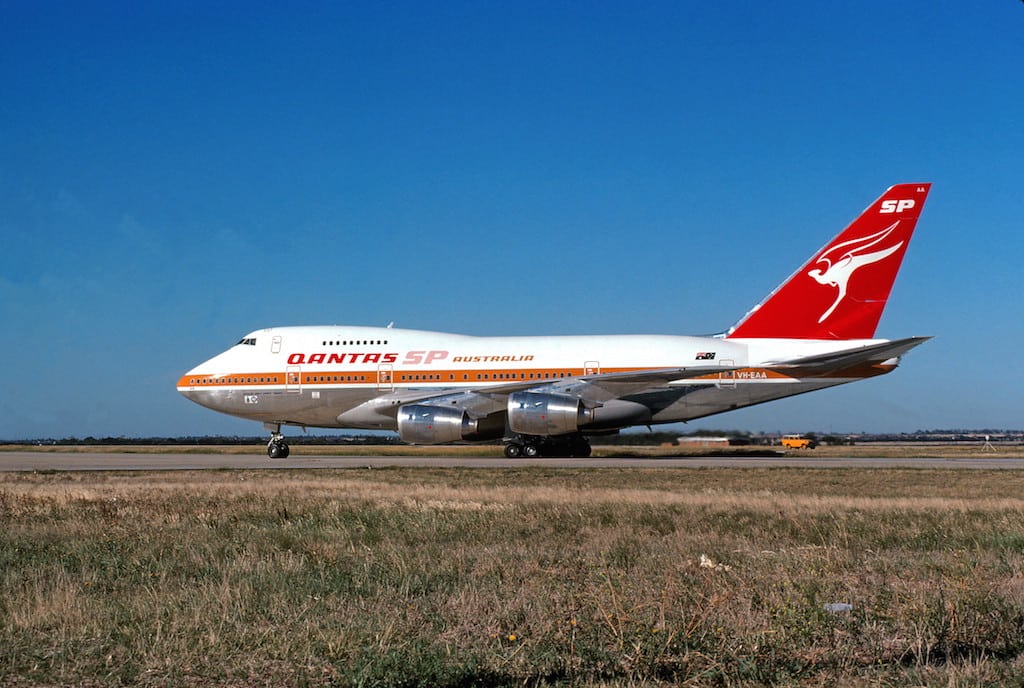Skift Take
Aviation nerds surely will be upset Qantas is retiring its Boeing 747s. The aircraft has been the world's most iconic jet for decades, but times change, and airlines now prefer smaller, more fuel efficient twin-engined jets. Sadly only a few airlines — British Airways, Lufthansa, Korean Air and Air China — seem committed to the aircraft beyond 2020.
Another major global airline is planning to retire its Boeing 747s, betting its future on a new generation of fuel efficient twin-engined jets.
This time it’s Qantas, the Australian airline, which announced Wednesday it will retire its last Boeing 747-400s by 2020, almost 50 years after it began flying an early version of the iconic jet. As a replacement, Qantas said it had ordered six more Boeing 787-9s, the same airplane it has been using since March on its new Perth to London route, the first-ever nonstop link between Australia and Europe.
The aircraft retirements and replacements are the latest in a series of changes at Qantas over the last decade from Irish CEO Alan Joyce, who has turned the airline from a laggard into a top performer. On Wednesday, at the same time Qantas announced the Boeing 747 retirements, it told investors it expects a record full-year profit of between A$1.55 billion and A$1.60 billion ($1.16 billion to $1.2 billion) for the current fiscal year, despite facing a major increase in its fuel bill. The fiscal year ends June 30.
Having improved the airline’s financial health, and its stock price — up 443 percent since mid-2012 — Joyce is focused on using the newest planes to break some of the last frontiers in aviation. No airline has ever regularly flown from Australia to London, because no airplane, including the Boeing 747, could do it profitably with a full (or nearly full) passenger load.
But the 787 changed that. It’s not perfect for Qantas, because it still doesn’t have the range to fly from Qantas’ key hub, Sydney, to Europe. But it can fly from Perth, which, at least for now, is close enough. The flight takes 17 hours, give or take, depending on winds. The 787 is about 20 percent more fuel efficient than the 747 and maintenance costs less, according to Qantas.
By the end of 2020, when the just-announced Dreamliners have all arrived, Qantas will have 14 — enough, the airline said, to add new destinations in in the Americas, Asia, South Africa and Europe.
“Over the years, each new version of the 747 allowed Qantas to fly further and improve what we offered passengers,” Joyce said in a statement. “The Dreamliners are now doing the same thing.”
Qantas now has 10 Boeing 747s, and they fly routes like Brisbane to Los Angeles to New York. Eventually, Qantas would like to drop the Los Angeles stop, but that’s not going to be possible with the Dreamliner. Qantas will need an even longer range aircraft to fly nonstop from Sydney to the eastern United States, and it has challenged Boeing and Airbus to build it a plane capable of flying 20 hours by 2022.
Qantas is perhaps more focused on ultra-long-haul flying than most airlines, but it’s far from the only carrier that’s getting out of the 747. Last year, United Airlines and Delta Air Lines retired all of their humpbacked jumbo jets, and other carriers, including Cathay Pacific and Taiwan’s Eva Air have gotten rid of them in recent years. The four-engined jets are no longer competitive with today’s modern planes. Airlines prefer the 787, as well as the Boeing 777-300ER and the Airbus A350.
A few airlines are hanging on. British Airways remains a major operator of the Boeing 747-400, the same model Qantas is retiring, and plans to fly some well into the next decade. Most 747-400s were built in the 1990s and early 2000s.
Three airlines — Korean Air, Air China and Lufthansa — bought small batches of a later generation 747-8, which debuted in 2012. Those jets will fly for the foreseeable future, but while Boeing would still build the planes if an airline asked, it’s unlikely any carriers will do so.
The Daily Newsletter
Our daily coverage of the global travel industry. Written by editors and analysts from across Skift’s brands.
Have a confidential tip for Skift? Get in touch
Tags: airline innovation, Boeing, Boeing 787, qantas
Photo credit: Qantas will retire its 747 fleet by 2020. Pictured is an early-generation Boeing 747 SP. Qantas
